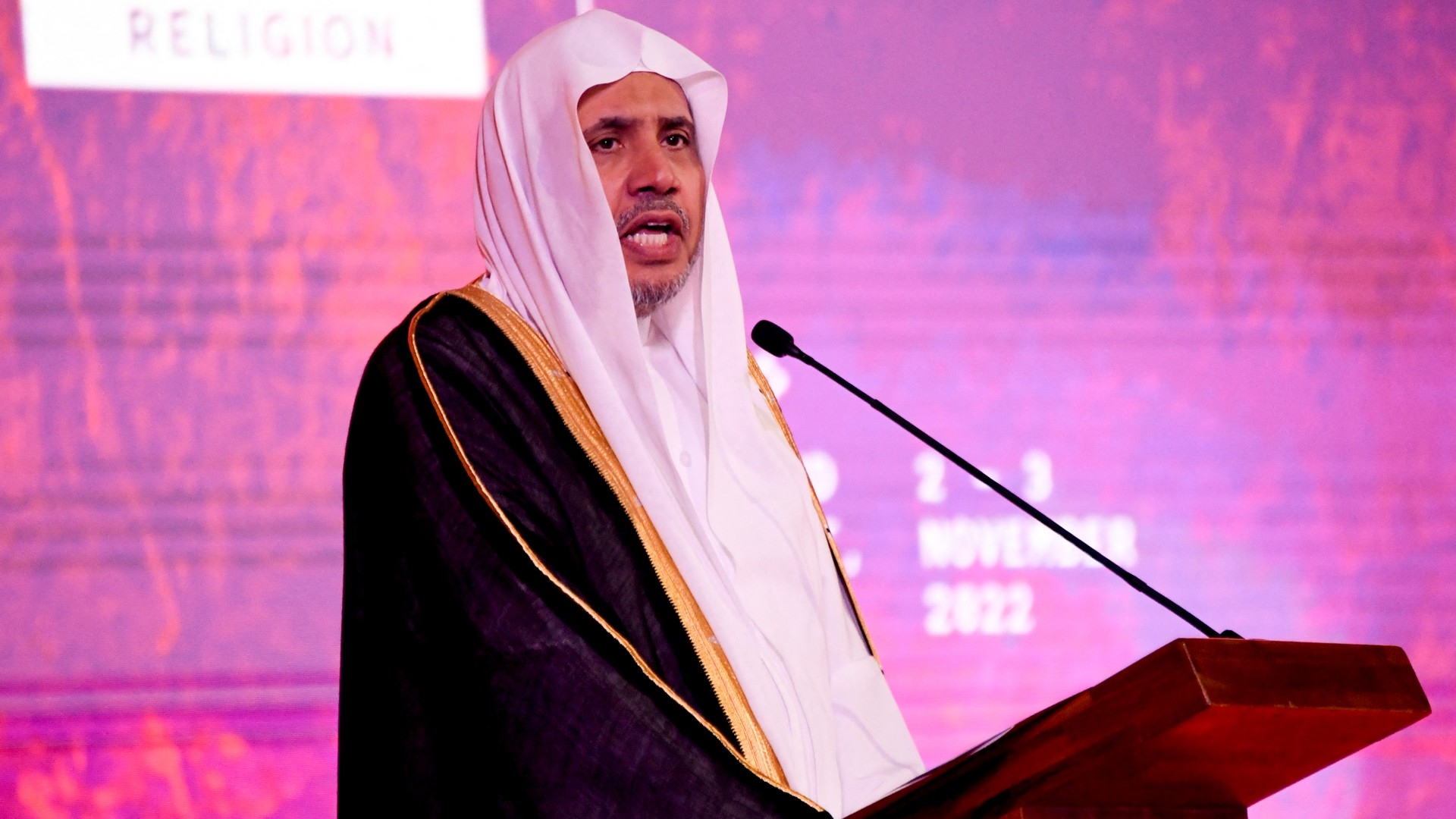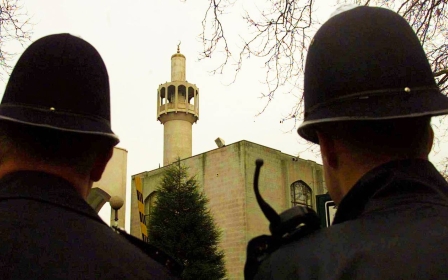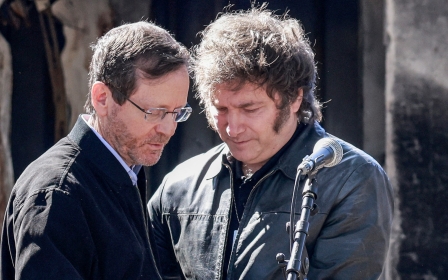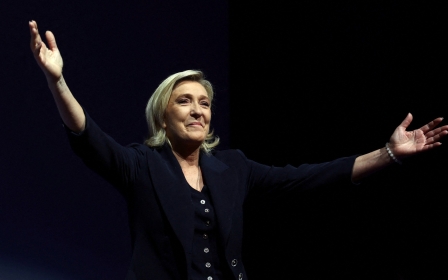Saudi religious official says he has 'amazing' chats with Marine Le Pen

In an unlikely collaboration, the head of the Muslim World League delivered a keynote speech at a right-wing British think tank on Monday.
Muhammad bin Abdul Karim Issa, the former Saudi Arabian justice minister who has headed up the Mecca-based international Islamic NGO since 2016, spoke at Policy Exchange in London.
He touched on a wide variety of issues, including Islamophobia and Israel’s war on Gaza.
In perhaps the most intriguing comments made during the event, Issa said he had frequent and fruitful conversations with French far-right leader, Marine Le Pen.
“We have a good relationship with her. Whenever we go to France, we meet with Miss Le Pen,” he said.
New MEE newsletter: Jerusalem Dispatch
Sign up to get the latest insights and analysis on Israel-Palestine, alongside Turkey Unpacked and other MEE newsletters
“We are very transparent when we talk to one another… We are friends in dialogue. We share friendship based on understanding.”
Issa spoke just a day after Le Pen’s National Rally Party won the most votes in the first round of French parliamentary elections.
“[When I am in] France, I must respect the values of the republic. Otherwise, how can I enter into a state without respecting their values?” he said.
“[Le Pen] asked me if this is Islam. I said yes, this is Islam, and I’m the representative of the Muslim World League.”
He said that Muslims should respect the constitution, laws and prevailing culture of the countries in which they reside.
He would not go into detail about other things he discussed with Le Pen but insisted they were “intellectual” in nature rather than political. He said he did not engage in politics and instead respected “the will of the people”.
“All the intellectual points that we discussed, we agreed upon. It was an amazing conversation.”
There were no further follow-up questions on the matter - for example, on what he thought about Le Pen and her party’s history of anti-Muslim remarks and sentiments.
Middle East Eye attempted to attend the event in London, which was widely attended by journalists, but did not hear back from Policy Exchange.
MEE instead watched the event online, and tried to ask a question virtually - but to no avail.
Away from France, several of the questions directed to Issa were specific UK talking points that are of interest to Policy Exchange.
Among them, host Dean Godson asked about the definition of Islamophobia proposed by the All-Party Parliamentary Group on British Muslims.
Godson, the director of Policy Exchange, said that such a definition would make criticism of the Muslim Brotherhood, Hamas and Hezbollah “an impossibility”, and invited Issa to comment on whether it would stifle free speech.
The definition of Islamophobia is something that the right-wing think tank has been critical of for several years.
Issa gave a general answer, stating that Islamophobia described those who “hate Islam as a faith regardless of anything else”.
Despite what was a leading question, he didn’t get bogged down on further specifics about the definition discussion in the UK.
He was asked a further question on this topic by a British reporter, who enquired about whether criticism of “the content of Islam”, such as the notion that “Islam discriminates against women”, would constitute Islamophobia.
Issa said that those who read the Quran and sayings of the Prophet Muhammad, known as hadiths, and still believed Islam to oppress women may indeed hold hatred towards Islam, or may misunderstand the religion.
On the latter point, he called on Muslims to represent true Islam to those who misunderstand it.
Attendees and reporters who wanted a quick line in which Issa criticised prevailing criticisms of definitions of Islamophobia would have been left disappointed.
Elsewhere, in another localised question, Sir John Jenkins, a former British ambassador to Saudi Arabia, asked about the role of organisations like The Muslim Vote, which was set up to encourage Muslim political participation in the upcoming UK general election.
Flexing his linguistic muscles and repeating the question in both English and Arabic, Jenkins asked what the appropriate way was for Muslims in the West to engage with politics in non-Muslim societies.
Issa said that Muslims should engage in the societies they live in while respecting laws and promoting co-existence.
At one point Issa said: “If you don’t like the country you live in, you can leave it”, echoing the language of Le Pen's National Rally.
On the issue of the war on Gaza, Issa said he condemned Hamas’s attack on southern Israel on 7 October and that he also condemned the “collective revenge” that Israel enacted since then.
He said the Israeli government did not represent all Jewish people and that Hamas did not represent Palestinians. He added that it was the Palestinian Authority that was representative of Palestinians.
In another UK-specific question, Issa was asked to clarify comments he was quoted as saying over the weekend in the Daily Mail, in which he said that if Muslims - such as those protesting against Israeli actions in Gaza - are “repeatedly described as antisemites”, it may drive them towards “political Islam and extremism”.
Issa said that anyone should be able to express their opinions through lawful and legitimate means, such as calling for a ceasefire in Gaza, and such a stance should not be considered antisemitic.
MEE was unable to ask if Issa believed that such expressions of opinion in Saudi Arabia - which funds the Muslim World League - would also be valid, considering a widespread crackdown on Palestinian solidarity.
MEE’s virtual hand remained raised but was not called upon.
Middle East Eye delivers independent and unrivalled coverage and analysis of the Middle East, North Africa and beyond. To learn more about republishing this content and the associated fees, please fill out this form. More about MEE can be found here.




